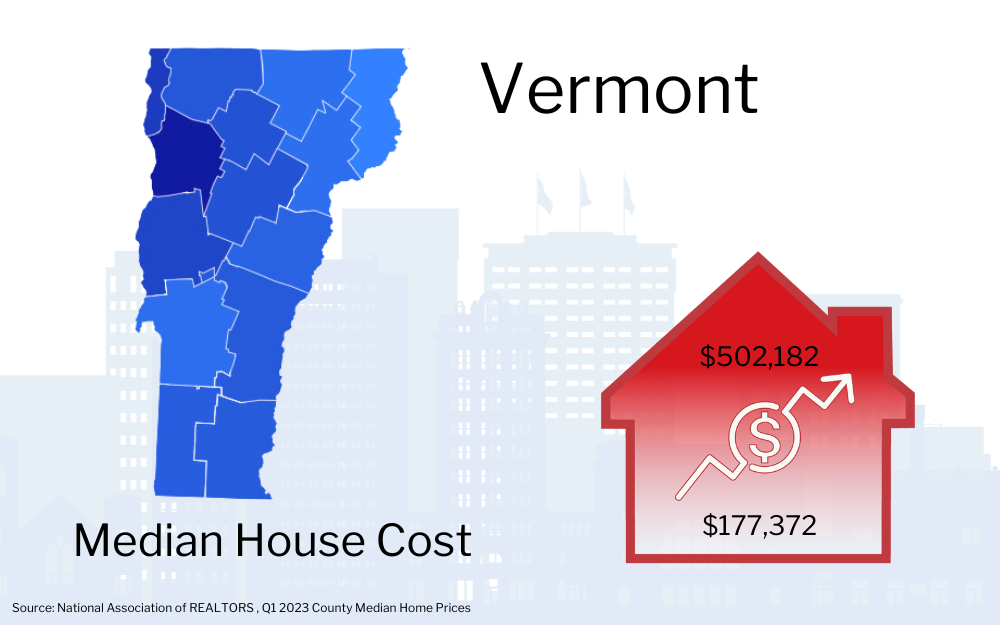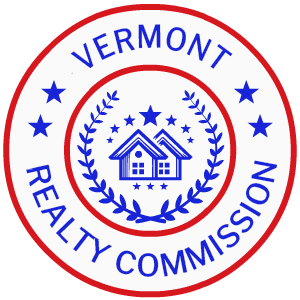
The real estate exam in Vermont separates the national and state exams such that they are done separately during the application process. The national exam is done first after completing the real estate course.
According to OPR, you must do the national exam in a period of less than two years before you submit your application.
The national exam consists of 100 questions and is administered through PSI. Once you complete the training, contact PSI to register and schedule the exam.
On the day of the exam, you should report to the nearest PSI exam center and do it on the computers provided. Since the exam is online, the results show up immediately, letting you know whether you have passed.
In case you fail the exam, you can apply to re-do it and pay the exam fees again.
Real Estate Exam Snapshot
The OPR administers the state exam as part of the application process. It consists of 36 questions testing your knowledge of state guidelines for real estate business.
The section with multiple choice questions is considered difficult, and the minimum score to pass it is determined using the Angoff method. The experts in the field assess the questions’ difficulty and set a minimally competent practitioner (MCP).
Some sample questions in a Vermont real estate exam include:1
- Halley owns 25 acres of land in a residential area and wants to develop a real estate complex containing 50 single-family homes. What type of mortgage can she obtain that will permit her to pay it off as she sells each home?
a) PMI
b) Pledged Account
c) Open-end
d) Blanket
- Trevor owns an apartment building that is 75 years old. He has not performed much maintenance on the building, so the foundation and structural integrity are starting to crumble.
As a result, the building’s value has been decreasing. What does that reduction in value refer to?
a) Environmental Decrease
b) External Obsolescence
c) Functional obsolescence
d) Depreciation
- Helga purchases an investment property in the city for $750,000. In the first year, the property generated an annual cash flow of $75,000, but she sustains a $25,000 tax loss that she can apply against the income of a very successful car wash that she owns.
If Helga is in the 35% tax bracket, what is her after-tax cash flow related to the city property?
a) $75,000
b) $35,000
c) $100,000
d) $26,250
If you want to pass the real estate exam after the first try, ensure that you practice with as many sample questions as possible.
Vermont OPR: Real Estate Brokers & Salespersons License Application (The Five Necessary Steps)
After meeting all the basic requirements for a real estate agent in Vermont, the next step is to apply for the license. Here is a step-by-step process to complete your application:
Step 1: Do the Pre-Licensing Course
The Vermont Office of Professional Regulation has approved different education providers to offer the real estate pre-licensing course. Find one near you for traditional classroom learning or hop on an online course and learn at your own pace.
To qualify, you must complete 40 hours of coursework and cover all the topics included in the entire course.
Step 2: Take the Vermont Real Estate Exam and Pass
The real estate exam is administered after you have completed the training course. Your education provider will send a notification to PSI notifying them of your training completion so that you can register for the national exam.
After taking the 100-questions national exam on the PSI exam website, you can proceed with your application and do the state exam. PSI may require your fingerprints before doing the exam so they can check your identity and run a background check.
Step 3: Find a Real Estate Broker To Work With
A real estate broker will hold your hand and help you start your career. To get a license in Vermont, you must find a Vermont-registered broker and affiliate with them.
In your application, you must fill out a Real Estate Verification of Employment and Supervision form,2 and your real estate broker must sign it. This will assure the state that you are ready to work under the supervision of a broker and start your career.
With that in mind, it’s important to understand that you cannot work independently as a real estate agent in Vermont.
Step 4: Fill Out and Submit Your Application
All applications in Vermont are submitted online through the Office of Professional Regulation Services Platform.3 Therefore, you’ll need to submit all your application documents through the platform and complete the state exam.
Some of the documents you need to Submit include:
- A certificate to show that you completed the 40-hour pre-licensing course
- An employment and supervision form signed by your broker to show that you are working with one
- Proof that you passed the national and state examinations
If you have any convictions in your background check report, you must report them to the Office of Professional Services.
Step 5: Do a Post-Licensing Course
If your application is successful, the OPR will award you a real estate license so that you can practice legally in Vermont. However, before you start working, you’ll need to do an 8-hour post-licensing course to get you familiar with the market.
The course has the following topics:
- Using the code to solve ethical dilemmas
- Advocating for short-sale clients
- Document Diligence: Safeguarding your transactions
- The fundamentals of commercial real estate
Each topic takes two hours to complete and should be completed within 90 days of initial licensure by the state.
Financial Requirements for Vermont OPR: Real Estate Brokers & Salespersons Membership
The OPR has few expectations when it comes to the financial requirements of its members.
You only need to pay $100 as the license application fee. This fee also includes the state exam fee, which is done as you submit your application.
Other payments, like the real estate tuition fees, are paid to the education provider approved by the state. If you need the OPR to conduct your background check, you may have to pay $25 at the OPR’s office.
The OPR office is located at the following address.
128 State Street
Montpelier, VT 05633
You can walk into the office from 8:30 a.m. to 3:30 p.m. on Monday through Friday and get services right away. You can also call 802-828-1505 to get information on how to pay the fees and any other questions about applying for a real estate license.
Exercising Your Right To Apply for National Association of Realtors® (NAR) Membership
Upon getting your real estate license from the OPR, you should enroll with the Vermont Association of REALTORS® and the National Association of REALTORS®.4 You can apply at any time to join the association.
Nonetheless, after submitting your application, you will be allowed a grace period of 90 days in which you must successfully complete all necessary qualifications.
They include the following:
- You can complete the NAR code of ethics training online or through a physical location. It would be better if you did the course online since it would cost you.
- Take the Vermont new member orientation class either online or through NAR-approved providers for physical classes. The Northern Association of REALTORS® (NVAR) offers the course in Williston, VT.
- As a member of NAR, you can set up an account with Renime, whereby you will be able to conduct several business-related transactions. This implies that you should have your business mail as noted on the REALTOR® application form and the assigned NRDS number.
- As a listing agent, you will require a multi-listing account where you will display all of your listings. Speak with a broker about how to establish your account.
If your application to join NAR gets accepted, then you will relish the advantage of being a member of the association.
How Long Can I Expect the Real Estate Application To Take?
The average time you can take to get licensed in Vermont is about 3-6 months. This is due to some time-consuming requirements like completing the training course, preparing for the exam, and doing the exam.
It’s important to take as much time as you need to study the course and prepare for the exam so that you can pass on the first attempt. Otherwise, you may spend more time re-doing the exam until you pass.
If you commit yourself fully to the course, you can get licensed in less than two months because the licensing process in Vermont is not complicated.
References
1Jarmon, L. (2023). Final exam prep agent flashcards preview. Brainscape. Retrieved October 29, 2023, from <https://www.brainscape.com/flashcards/final-exam-prep-agent-9865809/packs/17385752>
2State of Vermont. (2023). Real Estate Brokers and Salespersons Forms & Instructions. Office of Professional Regulation. Retrieved November 15, 2023, from <https://sos.vermont.gov/real-estate-brokers-salespersons/forms-instructions/>
3State of Vermont. (2023). Online Services. Vermont Secretary of State. Office of Professional Regulation. Retrieved November 15, 2023, from <https://sos.vermont.gov/opr/online-services/>
4Vermont Association of Realtors®. (2023) Become a Realtor®. Vermont Association of Realtors®. Retrieved October 29, 2023, from <https://www.vermontrealtors.com/become-a-realtor/>
